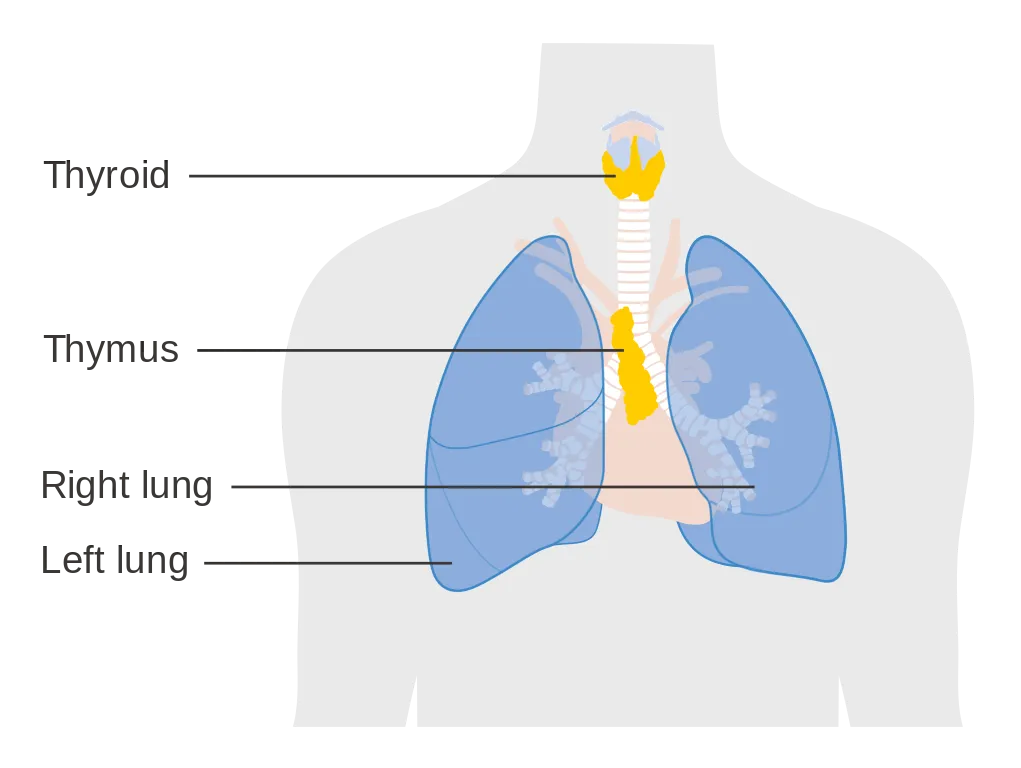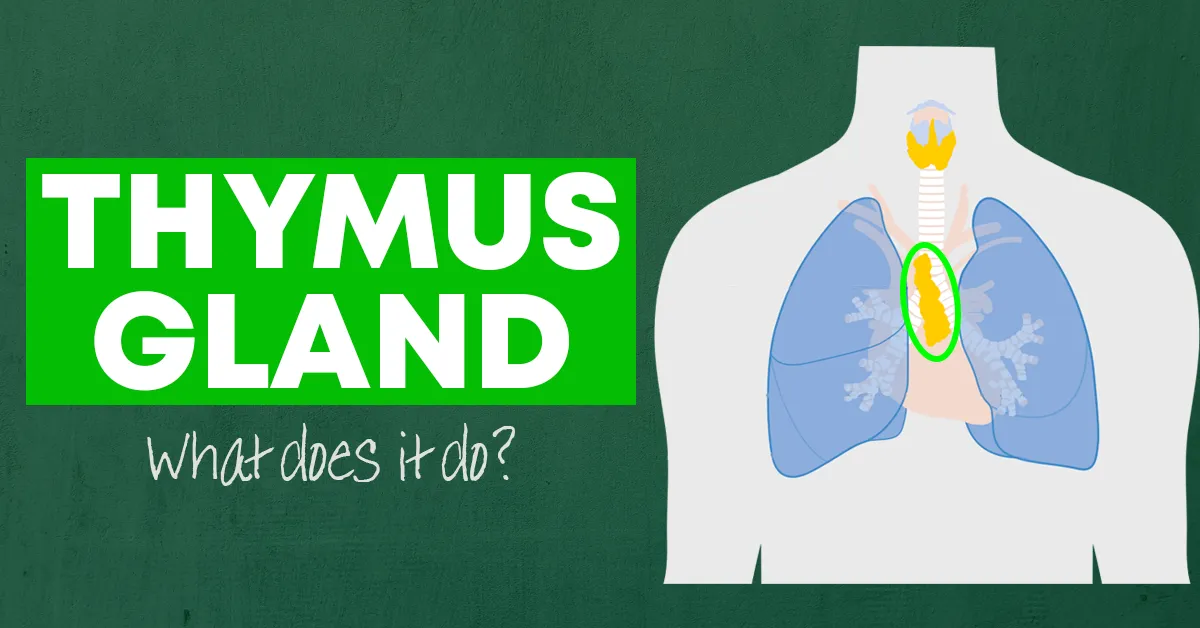Your body has a complex immune system that fights diseases and infections. An important part of your immune system is your thymus gland.
What does the Thymus Gland Do?
The thymus gland trains a special type of white blood cell, called T-lymphocytes or T-cells for short. These T-cells enter your blood and are dispersed to organs in your lymphatic system (like lymph nodes) where they can be used to fight disease and infection as part of your immune system.
The thymus gland’s process of training your T-cells starts even before a child is born and continues up to puberty. By this age, your thymus gland has trained all the T-cells you will need for your lifetime.
For this reason, it was long believed that the thymus gland did not serve a meaningful purpose for adults. Thus it has been considered safe to remove your thymus gland if necessary for treatments (like the removal of cancerous or benign tumors).
However, more recent research indicates the thymus gland may have some immune system use in adulthood. The thymus gland may even continue producing new T-cells in adults, though slower than before puberty. But if you need to have it removed, you still can safely do so.
Where is the Thymus Gland Located?
Your thymus gland is located in the front of the upper portion of your chest. It is located lower than your thyroid gland, which is in your neck.

Does the Thymus Gland Shrink as You Age?
Your thymus gland is largest during childhood and shrinks to less than half of its original size after puberty. A newborn’s thymus gland may be 2.5 inches long, but by adulthood, it can shrink to closer to 1 inch in length.
What Hormones does the Thymus Gland Produce?
Like your thyroid, your thymus gland is also involved in producing hormones for your immune system and T-cells. On the other hand, your thyroid gland is responsible for hormones that control metabolism and other body functions.


